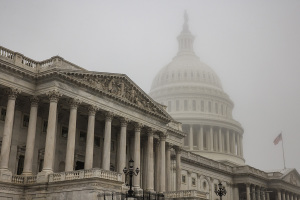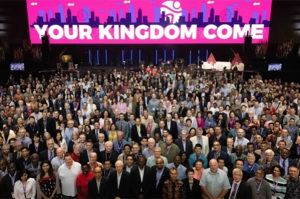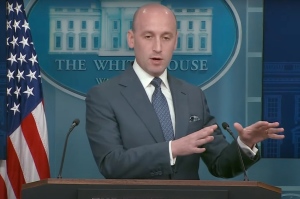The Overblown War Between Faith and Science
During the second weekend in April, the Vatican hosted what the Wall Street Journal called an "unusual conference."
At this "unusual conference," scientists, including a Nobel Laureate, theologians, and entrepreneurs came together to discuss one of the most contentious issues of our time: stem cell research.
This, the second annual "International Vatican Adult Stem Cell Conference" along with various related efforts had as a primary goal to "lay the groundwork for a collaborative network of scientists, educators and patrons who embrace the promise of adult stem cells."
Another goal was to promote what the head of the Pontifical Council for Culture called the "necessary union between science and faith." As Robin Smith, the CEO of NeoStem, a biopharmaceutical company, told conferees, "to address global suffering, one does not have to choose between faith and science . . . . These two ideas fit together symbiotically."
By way of evidence, conferees were told about "how new discoveries are being made for treatments of multiple sclerosis, cardiovascular disease, cancer, diabetes, organ and tissue repair." These treatments, using adult stem cells, have none of what Smith called the "ethical blemishes" inherent in embryonic stem cell research that requires the killing of human beings when they are embryos.
Tragically, the attention given to embryonic stem cells has obscured the far greater therapeutic potential of adult stem cells.
This potential was given a human face with the story of Elizabeth Lobato, a 14-year-old girl diagnosed with osteogenesis imperfecta, also known as "brittle bone disease," when she was only ten months old.
In addition to breaking her bones every few months, the condition has caused Elizabeth and others like her to suffer from a variety of ailments including "muscle weakness, hearing loss, loose joints, curved bones, scoliosis, brittle teeth and short stature."
But an adult stem cell treatment, using "bone marrow-derived stem cells from her father," has helped Elizabeth grow thirteen inches since beginning the treatment. Making Elizabeth's story that much more poignant is that her family refused even to consider any treatment involving embryonic stem cells.
This made the headlines about the conference all the more confusing: "The Vatican Announces Support for Stem Cell Research"-as if their position had changed. It hadn't. Of course, the Vatican and most Christian bioethicists have consistently endorsed stem cell research that did not involve the destruction of human life. And they have consistently rejected any scientific research that does involve the destruction of human life.
This consistent stance has been vindicated now that so many, even proponents of embryonic stem cell research like Michael J. Fox, have acknowledged that embryonic stem cell research hasn't lived up to the promises made by its supporters.
As conferees learned, real medical breakthroughs are far more likely to come as the result of research done using adult stem cells.
And this leaves an obvious question: Why pursue embryonic stem cell research at all? Given the "ethical blemishes," and the lack of results, why do people still insist on pursuing this moral and scientific dead end?
Part of the answer is that the debate over embryonic stem cell research isn't really about scientific results. It's about the right of "science" to operate independently of any external moral and ethical considerations. That is, it's about science rejecting faith.
And the other part of the answer is that people don't know the incredible success of adult stem cell treatments. Getting that word out was the purpose of the conference. And now it's up to us to spread the news and correct the public record. Alleviating suffering isn't a matter of choosing between faith and science. On the contrary, it only happens when the two work hand-in-hand.





























